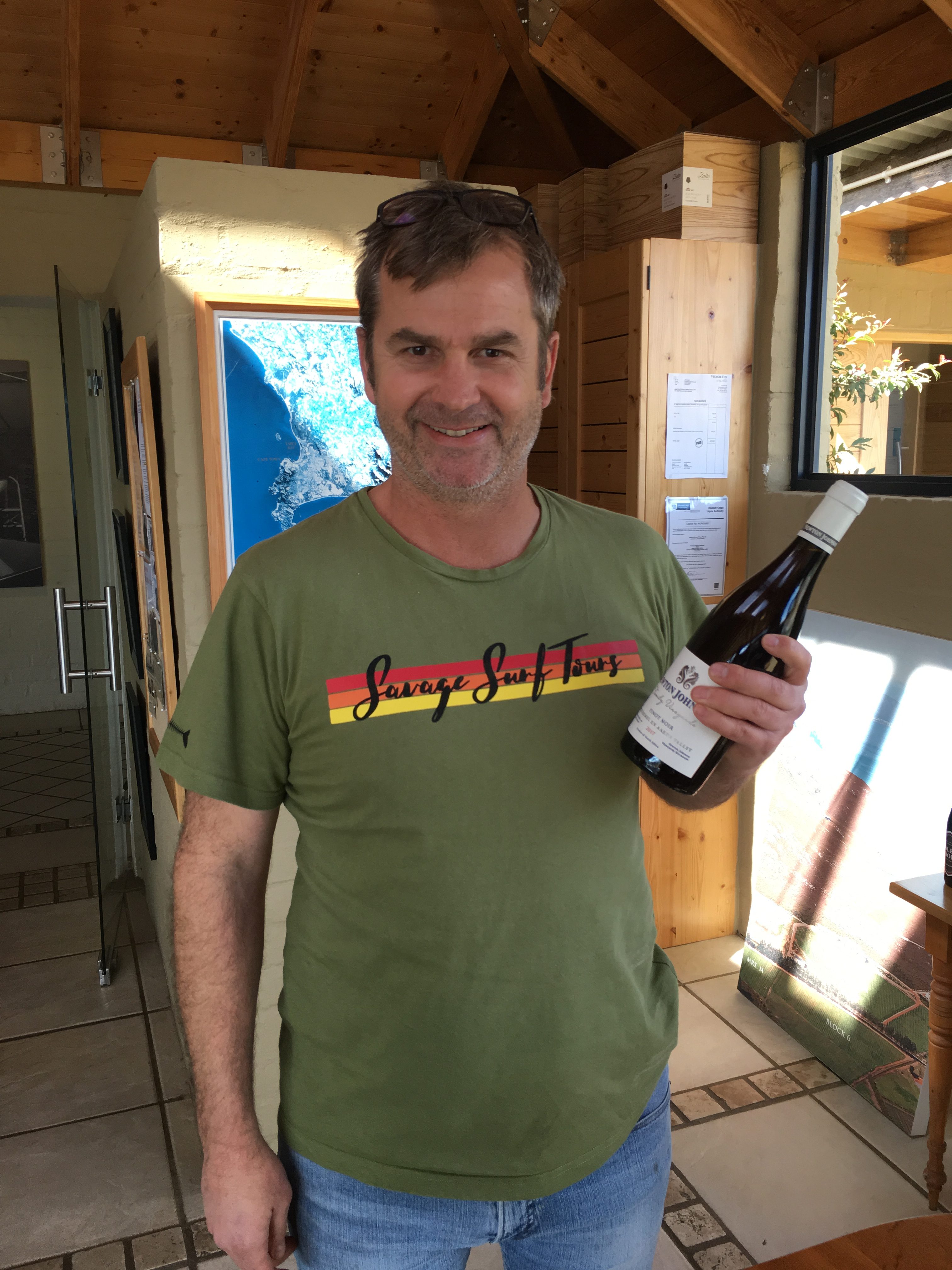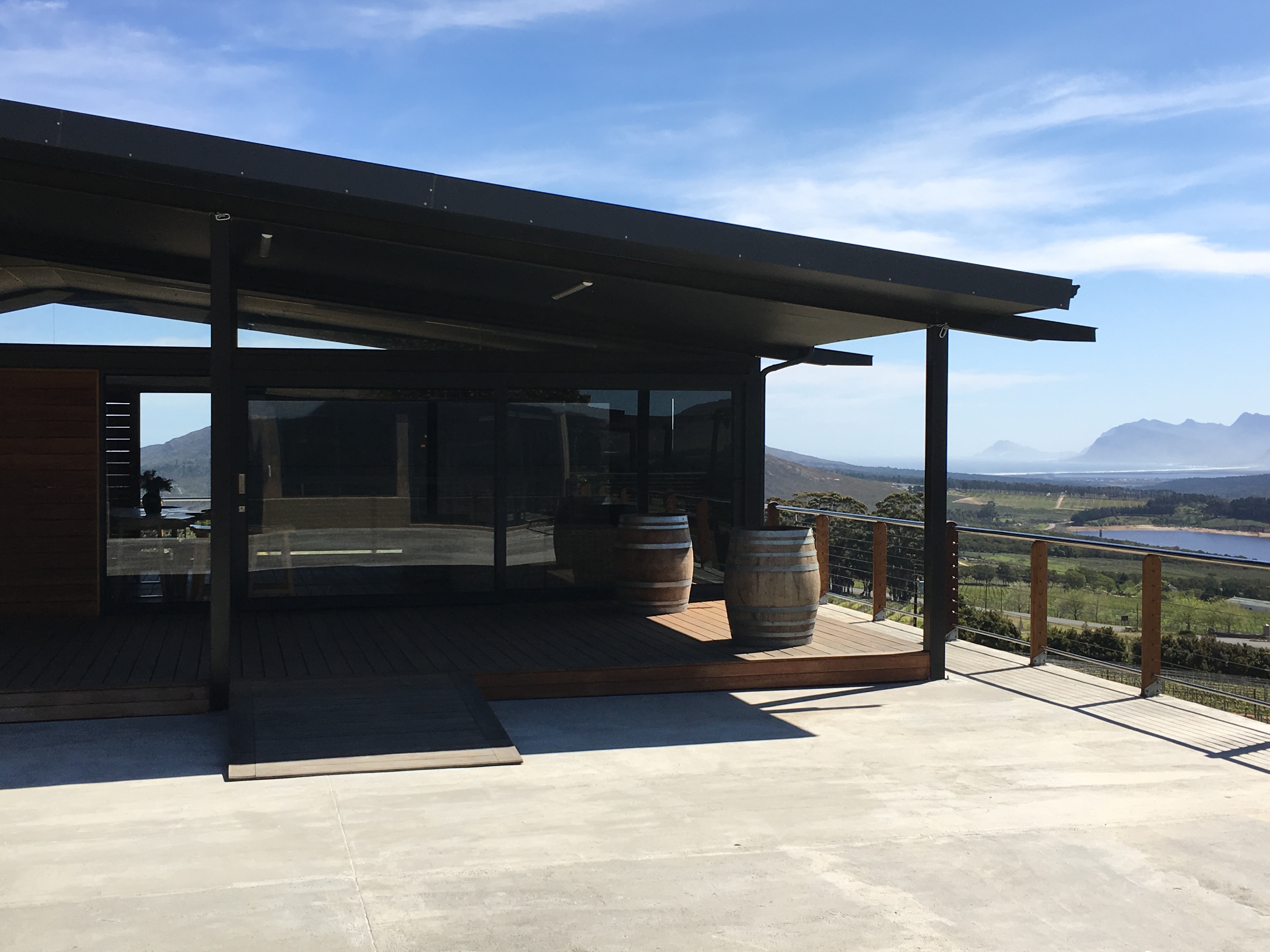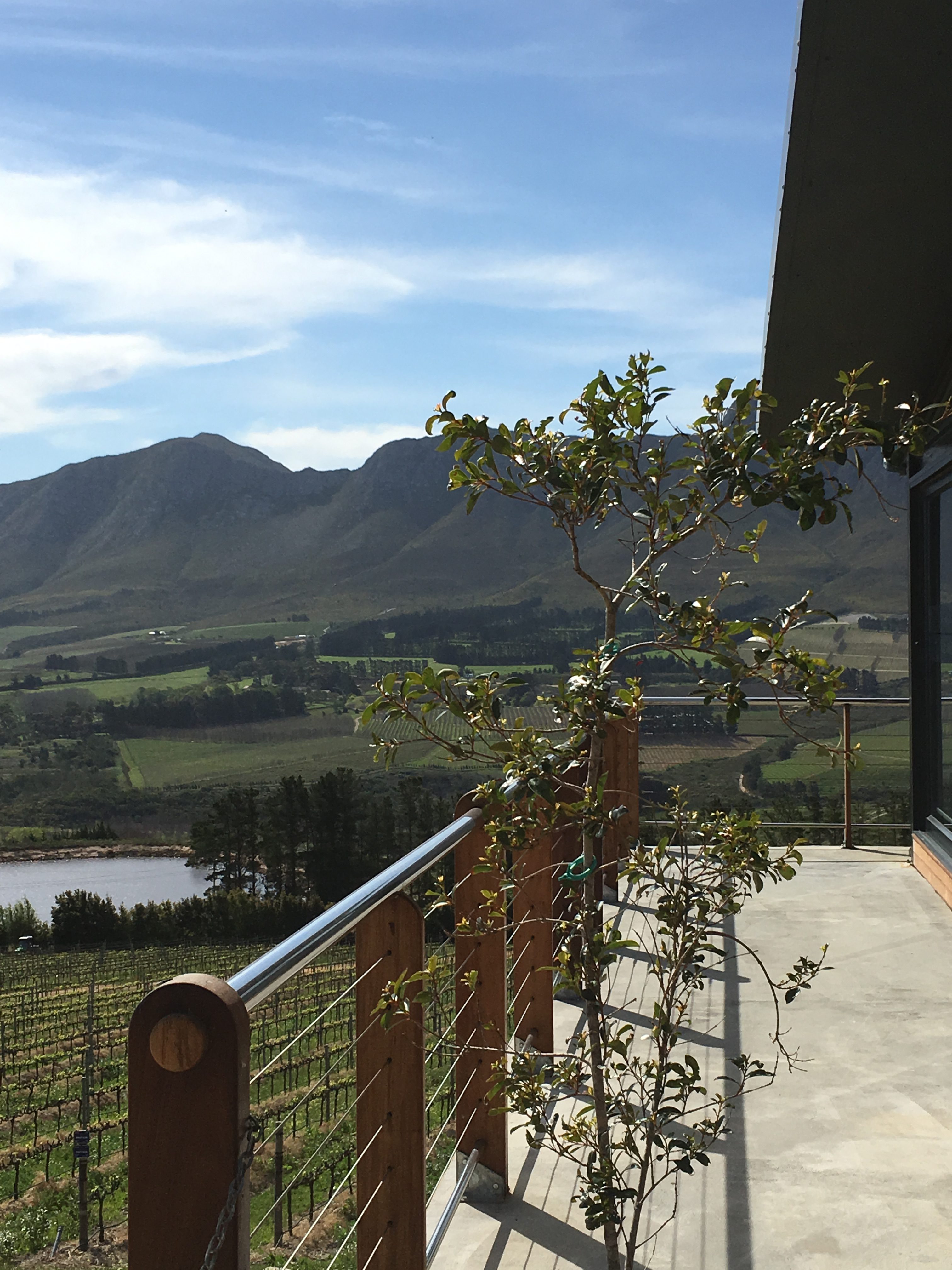A recent quick trip to my hometown Cape Town gave me an opportunity to visit one of the most promising wine regions of the Cape.
The Hemel en Aarde (Heaven and Earth in English) Valley lies just inland from the seaside resort town of Hermanus in the Walker Bay district, about 100 or so kilometres southeast of Cape Town. This is cooler climate wine country (relative to say Paarl, Stellenbosch or Swartland districts), with both a higher latitude (i.e further south) than the older wine regions closer to Cape Town and also maritime influenced by the nearby ocean and regular onshore winds that funnel up the valley most afternoons. The valley runs in a southwest-northeast direction, away from the coast.
Most of the relatively recently planted vineyards lie on the north side of the R320 road, on land sloping down towards the cooler south. However, there is also a string of particularly propitious wineries located on the south side of the road. It is here that you will find Newton Johnson Vineyards, one of South Africa’s top producers of Pinot Noir, alongside its neighbours Bouchard Finlayson and Hamilton Russell. A family owned estate, NJV was founded in 1995 by Dave Johnson and his wife Felicity (nee Newton) and is now run by their sons Bevan and Gordon. Most of their vineyards face the southern winds of the cold Atlantic Ocean, planted on primarily granite soils. This terroir delivers wines that couple freshness with the linearity, minerality and florals that these decomposed ancient igneous soils impart.
After a hike along the cliff walk overlooking Hermanus’s Walker Bay to view the Southern Right Whales that have arrived to calve in the bay’s waters, I’ve worked up quite an appetite, so my first task is lunch in Newton Johnson’s handsome restaurant overlooking the vineyards. Head Chef Rickey Broekhoven’s food is delicious, based on local and seasonal bounty. The creamy barley-based mushroom and Jerusalem artichoke risotto is perfect with a crisp glass of NJV Southend Chardonnay 2017. It’s produced from a vineyard that lies on a notably cooler slope directly opposite the Newton Johnson farm in the valley, with slower ripening. The wine has a compact structure, with cool stone fruit flavours and vibrant acidity. The oak is barely noticeable, further enhancing the status of this classy wine among the other elegant chardonnays of the appellation.
After lunch I meet Gordon, who is one half of the Gordon and Nadia Newton Johnson husband-and-wife winemaking team. Our conversation ranges widely, and finally revolves mostly around the efforts that Cape wineries in general and NJV in particular have been making in eradicating the leaf roll virus from their vineyards. Eventually Gordon passes me on to Lisa who has managed the tasting room here for more than ten years and has watched as the NJV wines have evolved into the world class wines they are today. Lisa first pours me three vintages of the Newton Johnson Family Vineyards Chardonnay – the 2015, 2016 and 2017.
The Family Vineyards Chardonnay is off three vineyard blocks which are widely varied in their exposure to the sun. The south facing granitic slope gives vibrancy, clear cut structure and long, cool flavours. These south facing vineyards produce edgy, agile wines with nervy acidity, while the warmer north facing slopes provide more lustrous tones, delivering weight without being heavy, and layering the structure.
All three wines are intense, rich, complex and spicy, with the 2016 showing great line and length, and the oldest vintage showing smoky, dusty minerality on the nose and a beautiful balance of lime and oaky lanolin, with a spicy, acidic finish. More Maconnais than Meursault. These are the kinds of wine that give chardonnay its great reputation as being so expressive of the terroir it is grown in.
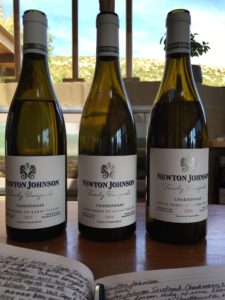
Next up are two vintages of the Family Vineyards Pinot Noir – 2016 and 2017. These are blended from grapes off the three best blocks, planted in 2003. The Family Vineyards Pinot Noir is Newton Johnson’s archetypal wine, evolving from the vineyard sites with the most consistent repute and refinement.
The 2016 has 13.3% alcohol. It displays a spicy nose with red fruits and berries. It tastes earthy, rich and savoury, with both red and black fruit and dark plum flavours. It tapers to a long, savoury finish.
The 2017 (13.4% alcohol) was one of the hotter vintages here, and offers up pronounced spices of cinnamon, clove nutmeg and allspice, alongside ripe cherry and red berry fruits. It is still angular and youthful, but promises much evolution with maturity. In fact earlier vintages (2013, 2014 and 2015) all achieved the maximum 5-star rating in the annual Platter’s Guide to South African Wines, and show the rewards of patience.
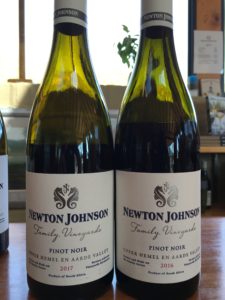
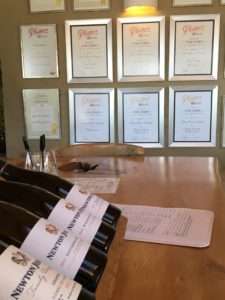
These are carefully made wines, hand crafted with utmost respect for the vineyards and vintage conditions, rather than made to a brand style. Gordon and Nadia make their wines with a soft hand, without commercial additives, channeling Burgundy. Farming their own vineyards season after season has given them a holistic understanding of the vineyard site and the means to allow these wines to follow a natural path.
I have not seen Newton Johnson’s wines for sale in BC (but believe that are available in other provinces). More’s the pity. But if you find yourself in the Cape, don’t miss them!
